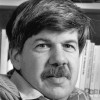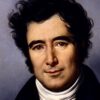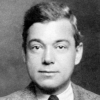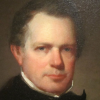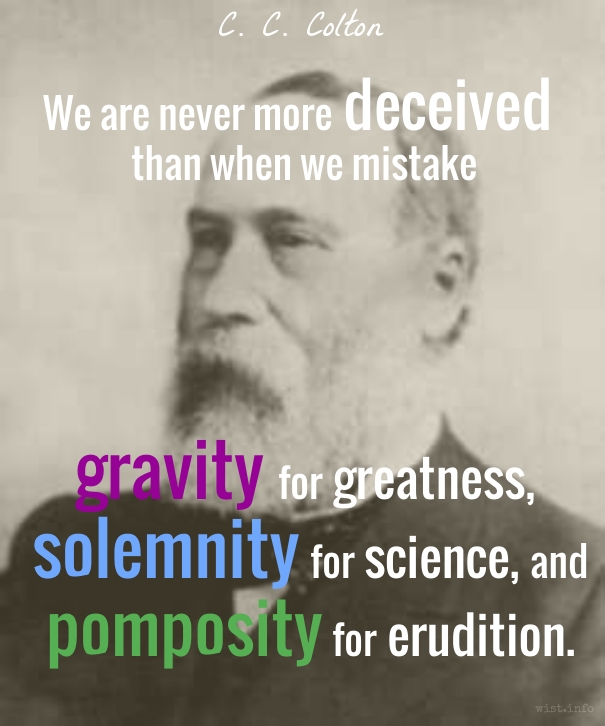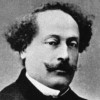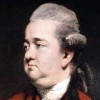Of course one does meet brilliant men, but they are isolated. The fashion nowadays is all for groups and societies of every sort. — It is always a sign of mediocrity in people when they herd together, whether their group loyalty is to Solovyev or to Kant or Marx. The truth is only sought by individuals, and they break with those who do not love it enough.
Boris Pasternak (1890-1960) Russian poet, novelist, and literary translator
Doctor Zhivago [До́ктор Жива́го], Part 1, ch. 1 “The Five-O’Clock Express,” sec. 4 [Nikolai Nikolaievich] (1955) [tr. Hayward & Harari (1958), UK ed.]
(Source)
Alternate translations:
Yes, there are gifted men, but the fashion nowadays is all for groups and societies of every sort. Gregariousness is always the refuge of mediocrities, whether they swear by Solovyiëv or Kant or Marx. Only individuals seek the truth, and they shun those whose sole concern is not the truth.
[tr. Hayward & Harari (1958), US ed.]
You come across talented people. But now various circles and associations are the fashion. Every herd is a refuge for giftlessness, whether it's a faith in Soloviev, or Kant, or Marx. Only the solitary seek the truth, and they break with all those who don't love it sufficiently.
[tr. Pevear & Volokhonsky (2010)]
Quotations about:
genius
Note not all quotations have been tagged, so Search may find additional quotes on this topic.
Elitism is repulsive when based upon external and artificial limitations like race, gender, or social class. Repulsive and utterly false — for that spark of genius is randomly distributed across all cruel barriers of our social prejudice. We therefore must grant access — and encouragement — to everyone; and must be increasingly vigilant, and tirelessly attentive, in providing such opportunities to all children. We will have no justice until this kind of equality can be attained. But if only a small minority respond, and these are our best and brightest of all races, classes, and genders, shall we deny them the pinnacle of their soul’s striving because all their colleagues prefer passivity and flashing lights? Let them lift their eyes to hills of books, and at least a few museums that display the full magic of nature’s variety. What is wrong with this truly democratic form of elitism?
Stephen Jay Gould (1941-2002) American paleontologist, geologist, biologist
Dinosaur in a Haystack: Reflections in Natural History, Part 5, ch. 18 “Cabinet Museums: Alive, Alive, O!” (1995)
(Source)
I am, somehow, less interested in the weight and convolutions of Einstein’s brain than in the near certainty that people of equal talent have lived and died in cotton fields and sweatshops.
Stephen Jay Gould (1941-2002) American paleontologist, geologist, biologist
The Panda’s Thumb, Part 4, ch. 13 “Wide Hats and Narrow Minds” (1980)
(Source)
It is erroneous to tie down individual genius to ideal models. Each person should do that, not which is best in itself, even supposing this could be known, but that which he can do best, which he will find out if left to himself. Spenser could not have written Paradise Lost, nor Milton the Faerie Queene. Those who aim at faultless regularity will only produce mediocrity, and no one ever approaches perfection except by stealth, and unknown to themselves.
William Hazlitt (1778-1830) English writer
“Thoughts on Taste,” Edinburgh Magazine (1819-07)
(Source)
But genius is nothing more nor less than childhood recovered at will — a childhood now equipped for self-expression with manhood’s capacities and a power of analysis which enables it to order the mass of raw material which it has involuntarily accumulated.
[Le génie n’est que l’enfance retrouvée à volonté, l’enfance douée maintenant, pour s’exprimer, d’organes virils et de l’esprit analytique qui lui permet d’ordonner la somme de matériaux involontairement amassée.]Charles Baudelaire (1821-1867) French poet, essayist, art critic
“Le Peintre de la Vie Moderne [The Painter of Modern Life],” sec. 3 (1863) [tr. Mayne (1964)]
(Source)
(Source (French)). Alternate translations:
But genius is simply childhood recovered at will, a childhood now equipped for self-expression, with mature faculties and an analytic spirit which permit him to set in order the mass of raw material he has involuntarily accumulated.
[tr. Kline (2020)]
Genius is only childhood recovered at will, childhood now gifted to express itself with the faculties of manhood and with the analytic mind that allows him to give order to the heap of unwittingly hoarded material.
[Source]
But genius is no more than childhood recaptured at will, childhood equipped now with man’s physical means to express itself, and with the analytical mind that enables it to bring order into the sum of experience, involuntarily amassed.
[Source]
Books are the legacies that a great genius leaves to mankind, which are delivered down from generation to generation, as presents to the posterity of those who are yet unborn.
Joseph Addison (1672-1719) English essayist, poet, statesman
The Spectator #166 (1711-09-10)
(Source)
Genius begins great works; but labour alone finishes them.
[Le génie commence les beaux ouvrages, mais le travail seul les achève.]
Joseph Joubert (1754-1824) French moralist, philosopher, essayist, poet
Pensées [Thoughts], ch. 23 “Des Qualités de l’Écrivain et des Compositions Littéraires [On Writers and Literature]” ¶ 52 (1850 ed.) [tr. Lyttelton (1899), ch. 22, ¶ 19]
(Source)
(Source (French)). Alternate translations:
Genius begins beautiful works, but only labor finishes them.
[tr. Calvert (1866), ch. 8]
Genius begins great works; labour alone finishes them.
[tr. Attwell (1896), ¶ 335]
Beautiful works. Genius beings them, but labor alone finishes them.
[tr. Auster (1983)], 1801]
Sparks are a secretive lot, and they keep their blasphemous secrets held close to their vests. On average, a good Spark will invest anywhere from one-half to two-thirds of his or her time and energy on the design and hiding of an elaborate lair, as they seem to have an instinctual understanding that people work best in an environment where the controls to all the deathtraps are right at their fingertips. This is a good thing, overall, as time spent digging an elaborate “Maze of Madness” is less time spent trying to find a way to turn the nearest city into a beautiful volcanic moonscape.
Phil Foglio (b. 1956) American writer, cartoonist
Agatha H and the Voice of the Castle (2014) [with Kaja Foglio]
(Source)
It is true that most madboy devices are built for purely utilitarian purposes: I want to go faster; How can one person stack all of these starfish; I will gain the respect of my peers if I can turn this entire town into ham, and so on. But there are some things that burst forth from their creator’s brain simply because they want to make the world more aesthetically pleasing. So what if it doesn’t help one conquer the world? It looks awesome. It’s Art.
Phil Foglio (b. 1956) American writer, cartoonist
Agatha H. And the Clockwork Princess (2012) [with Kaja Foglio]
(Source)
A secret lab is considered by many to be the physical manifestation of a spark’s mind. Thus they tend to be rather individualistic. Some are spotlessly clean; some are filled with dangerous trash. Some are ruthlessly efficient; some are filled with suicidal deathtraps. Needless to say, sparks are usually vocally dismissive of the labs of others, while surreptitiously making notes about things they’d wished they’d thought of themselves.
Such is the privilege of genius; it perceives, it seizes relations where vulgar eyes see only isolated facts.
[Tel est le privilége du génie: il aperçoit, il saisit des rapports, là où des yeux vulgaires lie voient que des faits isolés.]
François Arago (1786-1853) French Catalan mathematician, physicist, astronomer, politician
Biographies of Distinguished Scientific Men, “Joseph Fourier” (1859) [tr. Smyth, Powell, Grant]
(Source)
The difference between a man of genius seen in his works and in person, is like that of a lighthouse seen by night and by day, — in the one case only a great fiery brain, in the other only a white tower.
Genius is what you do with the mistakes.
Michael Moriarty (b. 1941) American-Canadian actor, musician
In Amy Wallace, “The Survivor,” New Yorker (26 Jan 2004)
(Source)
Referring to his work with film producer Larry Cohen. Full quote: "It was skin-of-your-teeth filmmaking. Larry tends occasionally not to look ahead. But genius is what you do with the mistakes, and nobody was better with mistakes than Larry Cohen."
The critic who at forty believes the same things he believed at twenty is either a genius or a jackass.
George Jean Nathan (1892-1958) American editor and critic
The World in Falseface, “Art & Criticism,” #62 (1923)
(Source)
Here’s to the crazy ones — the misfits, the rebels, the troublemakers, the round pegs in the square holes, the ones who see things differently. They’re not fond of rules, and they have no respect for the status quo. You can quote them, disagree with them, glorify or vilify them. About the only thing you can’t do is ignore them, because they change things, they push the human race forward. While some may see them as the crazy ones, we see genius, because the people who are crazy enough to think that they can change the world are the ones who do.
Steve Jobs (1955-2011) American computer inventor, entrepreneur
“To the Crazy Ones,” TV advertisement (1997)
(Source)
Often cited as a quotation from Steve Jobs, this was an Apple advertisement developed by Chiat/Day under the direction of Jobs after his return to the company in 1997, under the campaign "Think Different." The ad and its text was created by Chiat/Day talent like Craig Tanimoto, Rob Siltanen, and Ken Segall. (For more information on the ad's development, see Siltanen's article.)
Jobs did narrate the text at least once, but the original 1997 ad was voiced by Richard Dreyfuss.
Note: nearly all transcripts say, "But the only thing you can't do ..." while the word voiced is "About the only thing you can't do ...."
It is a mark of genius not to astonish but to be astonished.
Aubrey Menen (1912-1989) British writer, novelist, satirist, theatre critic
The Prevalence of Witches, ch. 4 (1947)
(Source)
He who would acquire fame must not show himself afraid of censure. The dread of censure is the death of genius.
William G. Simms (1806-1870) American writer and politician
Egeria, Or Voices of Thought and Counsel, for the Woods and Wayside, “Ambition” (1853)
(Source)
Everybody is a genius. But if you judge a fish by its ability to climb a tree, it will live its whole life believing that it is stupid.
A harmless hilarity and a buoyant cheerfulness are not infrequent concomitants of genius; and we are never more deceived than when we mistake gravity for greatness, solemnity for science, and pomposity for erudition.
Was I to believe him in earnest in his intention to penetrate to the centre of this massive globe? Had I been listening to the mad speculations of a lunatic, or to the scientific conclusions of a lofty genius? Where did truth stop? Where did error begin?
Jules Verne (1828-1905) French novelist, poet, playwright
Journey to the Center of the Earth, ch. 7 “A Woman’s Courage” (1864) [tr. Malleson]
(Source)
Riches are a trust. … Power is a trust. So also is genius or every degree of wisdom. … Talents are a trust, too; that is the condition of their increase. They must be put out to use, or they will ruin the steward.
Only mediocrity can be trusted to be always at its best. Genius must always have lapses proportionate to its triumphs.
Max Beerbohm (1872-1956) English parodist, caricaturist, wit, writer [Sir Henry Maximilian Beerbohm]
Obituary of Dan Leno, Saturday Review (5 Nov 1904)
(Source)
There is no error so monstrous that it fails to find defenders among the ablest men. Imagine a congress of eminent celebrities, such as More, Bacon, Grotius, Pascal, Cromwell, Bossuet, Montesquieu, Jefferson, Napoleon, Pitt, etc. The result would be an Encyclopedia of Error.
Constant effort and frequent mistakes are the stepping-stones of genius.
Elbert Hubbard (1856-1915) American writer, businessman, philosopher
Little Journeys to the Homes of the Great, Vol. 12: Little Journeys to the Homes of Great Scientists, “William Herschel” (1916)
(Source)
Talent is able to achieve what is beyond other people’s capacity to achieve, yet not what is beyond their capacity of apprehension; therefore it at once finds its appreciators. The achievement of genius, on the other hand, transcends not only others’ capacity of achievement, but also their capacity of apprehension; therefore they do not become immediately aware of it. Talent is like the marksman who hits a target which others cannot reach; genius is like the marksman who hits a target, as far as which others cannot even see.
[Das Talent vermag zu leisten was die Leistungsfähigkeit, jedoch nicht die Apprehensionsfähigkeit der Uebrigen überschreitet: daher findet es sogleich seine Schätzer. Hingegen geht die Leistung des Genies nicht nur über die Leistungs, sondern auch über die Apprehensionsfähigkeit der Andern hinaus: daher werden Diese seiner nicht unmittelbar inne. Das Talent gleicht dem Schützen, der ein Ziel trifft, welches die Uebrigen nicht erreichen können; das Genie dem, der eines trifft, bis zu welchem sie nicht ein Mal zu sehn vermögen.]
Arthur Schopenhauer (1788-1860) German philosopher
Die Welt als Wille und Vorstellung [The World as Will and Representation], Vol. 2, ch. 31 “Vom Genie [On Genius]” (1844 ed.) [tr. Payne (1958)]
(Source)
(Source (German)). Referencing Vol. 1, sec. 36.
Commonly paraphrased: "Talent hits a target no-one else can hit; genius hits targets no-one else can see."
Whether we believe the Greek poet, “it is sometimes even pleasant to be mad”, or Plato, “he who is master of himself has knocked in vain at the doors of poetry”; or Aristotle, “no great genius was without a mixture of insanity”; the mind cannot express anything lofty and above the ordinary unless inspired. When it despises the common and the customary, and with sacred inspiration rises higher, then at length it sings something grander than that which can come from mortal lips. It cannot attain anything sublime and lofty so long as it is sane: it must depart from the customary, swing itself aloft, take the bit in its teeth, carry away its rider and bear him to a height whither he would have feared to ascend alone.
[Nam sive Graeco poetae credimus ‘aliquando et insanire iucundum est,’ sive Platoni ‘frustra poeticas fores compos sui pepulit,’ sive Aristoteli ‘nullum magnum ingenium sine mixtura dementiae fuit’: non potest grande aliquid et super ceteros loqui nisi mota mens. Cum vulgaria et solita contempsit instinctuque sacro surrexit excelsior, tunc demum aliquid cecinit grandius ore mortali. Non potest sublime quicquam et in arduo positum contingere, quam diu apud se est; desciscat oportet a solito et efferatur et mordeat frenos et rectorem rapiat suum eoque ferat, quo per se timuisset escendere.]
Seneca the Younger (c. 4 BC-AD 65) Roman statesman, philosopher, playwright [Lucius Annaeus Seneca]
Moral Essays, “On Tranquility of Mind [De Tranquillitate Animi],” 17.10 [tr. Langsdorf (1900)]
(Source)
Great minds are related to the short span of time wherein they live as are large buildings to the narrow plot of ground on which they stand. Thus large buildings are not seen to their full extent because we are too close to them.
[Zu der kurzen Spanne Zeit, in der sie leben, verhalten sich die großen Geister wie große Gebäude zu einem engen Plage, auf dem sie stehn. Man sieht nämlich diese nicht in ihrer Größe, weil man zu nahe davor steht.]
Arthur Schopenhauer (1788-1860) German philosopher
Parerga and Paralipomena, Vol. 2, ch. 20 “On Judgement, Criticism, Approbation, and Fame [Über Urtheil, Kritik, Beifall und Ruhm],” § 242 (1851) [tr. Payne (1974)]
(Source)
(Source (German)). Alternate translation:
Compared with the short span of time they live, men of great intellect are like huge buildings, standing on a small plot of ground. The size of the building cannot be seen by anyone, just in front of it.
[tr. Saunders (1890)]
Great minds are related to the brief span of time during which they live as great buildings are to a little square in which they stand: you cannot see them in all their magnitude because you are standing too close to them.
[tr. Hollingdale (1970)]
One thing that humbles me deeply is to see that human genius has its limits while human stupidity does not.
[Une chose qui m’humilie profondément est de voir que le génie humain a des limites, quand la bêtise humaine n’en a pas.]
Alexandre Dumas, fils (1824-1895) French writer and dramatist
(Attributed)
(Source)
Earliest attribution is in the Great Universal Dictionary of the Nineteenth Century [Grand Dictionnaire Universel du XIXe Siècle], Vol. 2, "Stupidity [Bêtise]" (c. 1865)
Attributed to a wide variety of individuals, including (spuriously) to Albert Einstein.
Variants:
- "What distresses me is to see that human genius has limitations, and human stupidity has none."
- "How despairing it is to see that human genius has limitations, while human stupidity has none."
- "The difference between genius and stupidity is that genius has its limits."
- "Human genius has its limits, but stupidity does not."
- "Genius may have its limitations, but stupidity is not thus handicapped." (Elbert Hubbard, ed., The Philistine, title epigraph (Sep 1906)
See here for more discussion.
Conversation enriches the understanding, but solitude is the school of genius.
Edward Gibbon (1737-1794) English historian
Decline and Fall of the Roman Empire, Vol. 5, ch. 50 (1788)
(Source)
Well versed in the natural sciences and mathematics. She speaks seven languages proficiently. Were she not a woman one would consider her to be an intellectual.
Men of genius are often dull and inert in society, as a blazing meteor, when it descends to earth, is only a stone.
For it is not enough to have a good mind; the main thing is to apply it well. The greatest souls are capable of the greatest vices as well as the greatest virtues; and those who proceed but very slowly can make much greater progress, if they always follow the right path, than those who hurry and stray from it.
[Car ce n’est pas assez d’avoir l’esprit bon, mais le principal est de l’appliquer bien. Les plus grandes âmes sont capables des plus grands vices aussi bien que des plus grandes vertus; et ceux qui ne marchent que fort lentement peuvent avancer beaucoup davantage, s’ils suivent toujours le droit chemin, que ne font ceux qui courent et qui s’en éloignent.]
René Descartes (1596-1650) French philosopher, mathematician
Discourse on Method [Discours de la méthode], Part 1 (1637) [tr. Cottingham, Stoothoff (1985)]
(Source)
Sometimes quoted "the main thing is to use it well." (Source (French)). Alternate translations:
For ’tis not enough to have good faculties, but the principal is, to apply them well. The greatest Souls are as capable of the greatest Vices, as of the most eminent Vertues: And those who move but very slowly, may advance much farther, if they always follow the right way; then those who run and straggle from it.
[tr. Newcombe ed. (1649)]
For to be possessed of a vigorous mind is not enough; the prime requisite is rightly to apply it. The greatest minds, as they are capable of the highest excellences, are open likewise to the greatest aberrations; and those who travel very slowly may yet make far greater progress, provided they keep always to the straight road, than those who, while they run, forsake it.
[tr. Veitch (1901)
For to be possessed of good mental powers is not sufficient; the principal matter is to apply them well. The greatest minds are capable of the greatest vices as well as of the greatest virtues, and those who proceed very slowly may, provided they always follow the straight road, really advance much faster than those who, though they run, forsake it.
[tr. Haldane, Ross (1911)]
There is no great genius without a touch of madness.
[Nullum magnum ingenium sine mixtura dementiae fuit.]
Aristotle (384-322 BC) Greek philosopher
(Attributed)
Attributed to Aristotle in Seneca the Younger, "On Tranquility of Mind [De Tranquillitate Animi]" (17.10) (c. AD 60). (Source (Latin)).
Alternate translations:
This quotation as such is not found in surviving Aristotle. It may either represent something from Aristotle that has been lost since Seneca, or else Seneca fabricating a quote, quoting something spurious, or paraphrasing something Aristotle did write, e.g., his comments about madness/melancholy and poets/prominent talents (here and here). See also the Pseudo-Aristotle, Problemata, Book 30, ch. 1:
- "There is no great genius without a mixture of madness." [Example (1851)]
- "No great genius was without a mixture of insanity." [tr. Langsdorf (1900)]
- "No great genius has ever been without a touch of insanity." [tr. Stewart (1900), "On Peace of Mind"]
- "No excellent soul is exempt from a mixture of madness." [Example (1906)]
- "No great genius has ever existed without some touch of madness." [tr. Basore (1932)]
- "No great genius has ever existed without a dash of lunacy." [tr. Davie (2007)]
- "There was never any great genius without a tincture of insanity." [tr. @sentantiq (2018)]
- "There was never a genius without a tincture of madness."
- "No great mind has ever existed without a touch of madness."
Why is it that all those who have become eminent in philosophy or politics or poetry or the arts are clearly of an atrabilious temperament, and some of them to such an extent as to be affected by diseases caused by black bile, as is said to have happened to Heracles among the heroes? [tr. Forster (1927)]


